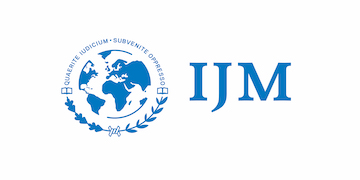
International Justice Mission
Products Used
Customizing Salesforce Solutions to Address a Complex Use Case
International Justice Mission (IJM) addresses the causes of modern slavery, as well as rescuing and caring for victims of forced labor, sex trafficking, and violence. To coordinate the work of investigators, social workers, lawyers, and other field staff in countries around the world, IJM created an integrated system built on Nonprofit Cloud. Subject matter experts were deeply involved, prioritizing technology to solve the problems they face on the ground.
Now investigators feed sensitive information into the nonprofit’s Justice Data Solution, which helps shape reports. Case Management empowers social workers to support survivors. Milestones and workplans integrated into logic models help program managers track progress toward their goals. All the data gathered becomes evidence of how widespread the problem of slavery is and demonstrates that IJM’s prescription for prevention and restoration works and is scalable—which has increased the nonprofit’s capacity for grant funding and fundraising.
-
8,671people relieved from violence & oppression in 2020
-
877perpetrators convicted in local courts in 2020
-
500K+donor records managed
Global Operation Needed to Streamline to Scale Up
IJM seeks to address the root causes of modern slavery, and rescue and care for victims of forced labor, sex trafficking, and violence. Disentangling systems of exploitation and abuse, which are typically hidden and secret, requires partnering with local law enforcement and coordinating the work of investigators, social workers, lawyers, and other field staff in 24 offices in 14 countries.
To unite people behind its mission, IJM needs to share solid evidence of the severity and scope of the problem of slavery in the modern world, and proof of the impact of IJM’s work. Funding the growth of its global operations requires a streamlined system for tracking, updating, and communicating with more than 500,000 active donors.
That’s a lot of data and stakeholders to manage. IJM saw technology as a way to manage these relationships and ultimately create more impact. A comparison of the options available indicated that Salesforce was the right choice.
It became clear that Salesforce could be used to scale out and standardize operations across investigations teams, prosecutors, attorneys, aftercare, Measurement and Evaluation, and tie that together with grants and donors so that our data flowed freely across the entire enterprise.” Bernardo Sandoval, Former CIOInternational Justice Mission
Expanding Nonprofit Cloud with More Salesforce Solutions
IJM’s ecosystem was built on Nonprofit Cloud with guidance from a Salesforce Customer Success Architect (CSA) and Salesforce Professional Services. SMEs—subject matter experts in areas like rescue operations or connections between slave labor and criminal organizations—were responsible for ensuring the technology prioritized solving the real-world problems they face in the field. IJM investigators research slavery networks and enter highly sensitive information into secure databases in IJM’s customized Salesforce system, called the Justice Data Solution (JDS). Data is aggregated and presented back to investigators in a visualization called a Network Map. They can explore the connections among suspects, victims, and criminal organizations, shaping an investigator report that will eventually result in a rescue operation.
Meanwhile, IJM social workers who support survivors use Service Cloud Case Management to manage care plans, keep track of contacts, and perform assessments. Program managers use an integrated system of logic models, workplans, milestones, and targets to measure program success; many indicators are standardized across programs, allowing IJM to measure similar metrics globally.
IJM also uses Experience Cloud for Nonprofits to power a new donor portal. It gives supporters a properly branded, seamless experience where they can update their contact info and their recurring gifts, and retrieve their own giving history or tax statements. This frees up time for IJM’s development team to focus on higher value activities that diversify and grow income.
Explore the Solutions:
Working Toward a Future When Analytics Drive Program Improvements
Analysis of the data centralized in the JDS — built on Nonprofit Cloud — is used to confirm the impact of IJM’s work. A main goal of the organization’s digital transformation was to gather undeniable evidence of the breadth and depth of slavery globally, and to demonstrate that IJM’s prescription for prevention and restoration works and is scalable. Already, the data shows that some countries in which IJM works are seeing an 80% reduction in violence against children. Having solid data on program outcomes also makes it possible for IJM to obtain grants that have previously been out of reach.
IJM’s leaders anticipate the day when enough data has aggregated in the JDS that the AI layer built into the Salesforce platform will be able to identify trends and leading indicators. For example, analytical insights could lead to IJM recommending a certain number of counseling sessions because of how that quantity relates to positive outcomes. Analysis could indicate a particular combination of services is highly effective, so that option would be added to an auto-recommended list of services during the intake process.
“There are no consistent measures in the justice sector, as there are in public health,” said Blair Burns, IJM’s Chief Program Officer. “JDS is allowing us to develop, test, and broadly roll out a set of indicators that will one day become global metrics driving performance to protect people from violence.”
Manage programs with Nonprofit Cloud.
About International Justice Mission
Founded in 1997, IJM is an international, non-governmental 501(c)(3) organization that protects people in poverty from violence. IJM partners with local authorities in 24 program offices in 14 countries to combat slavery, violence against women and children, and other forms of abuse against people who are poor.
